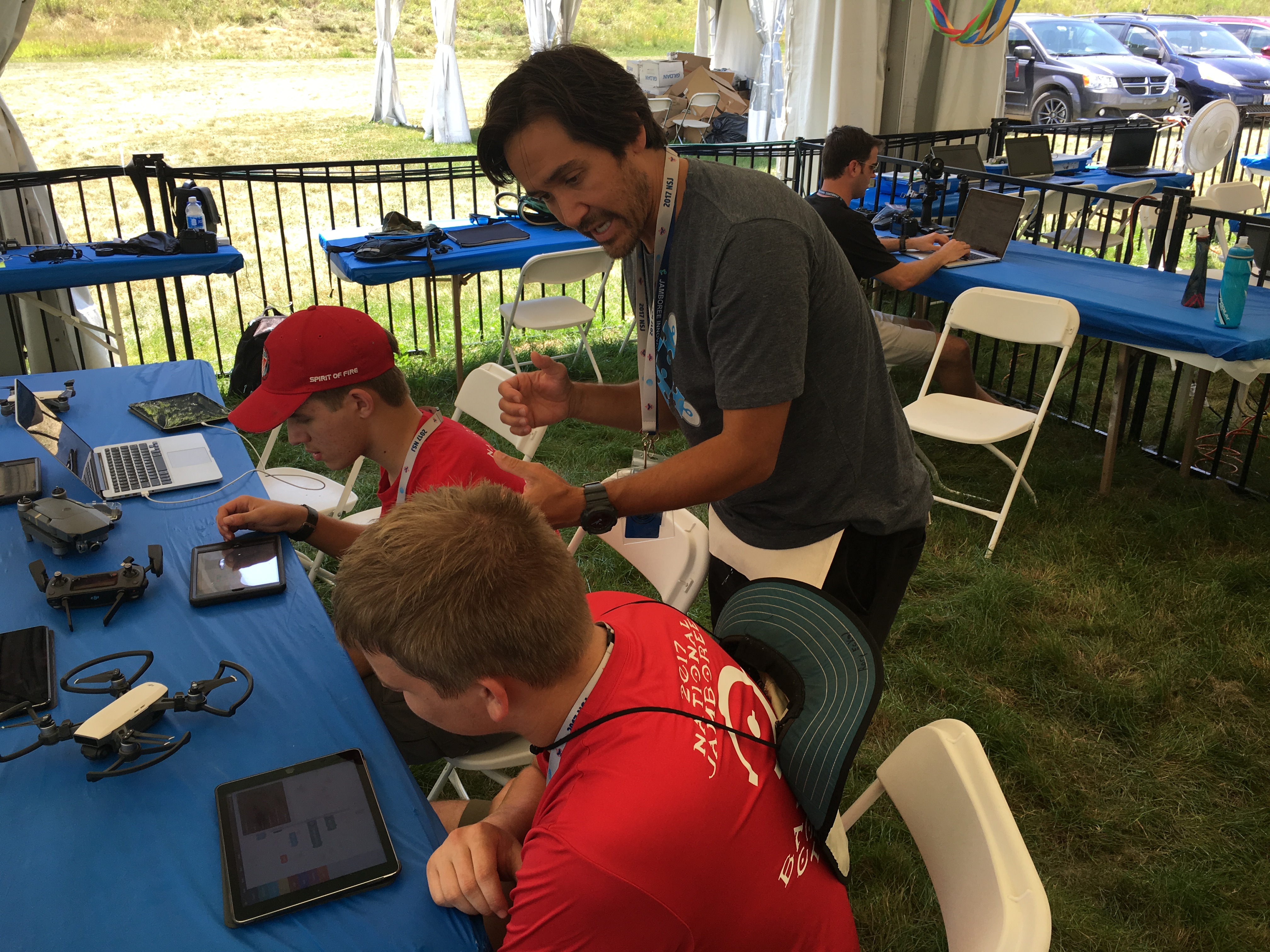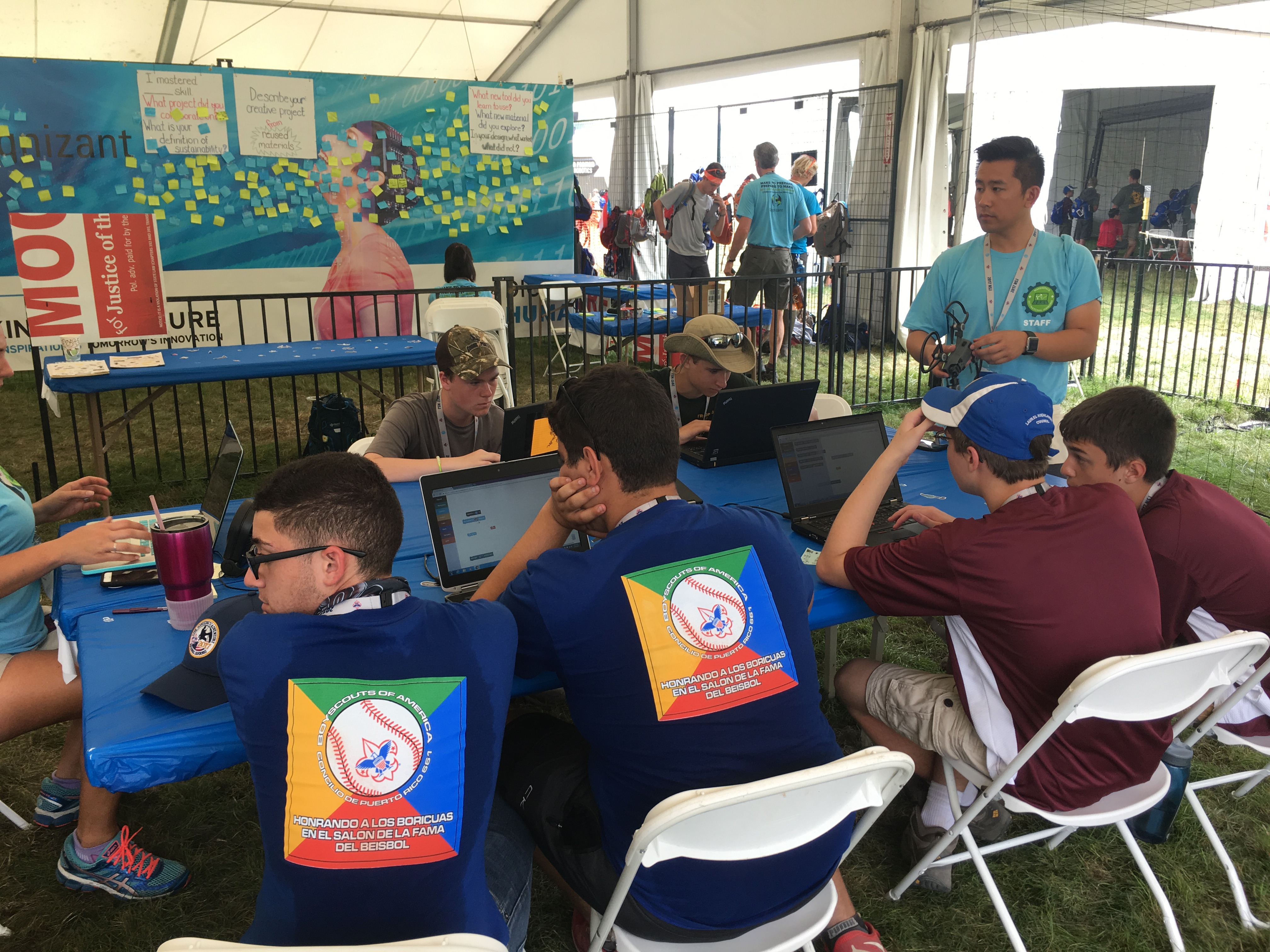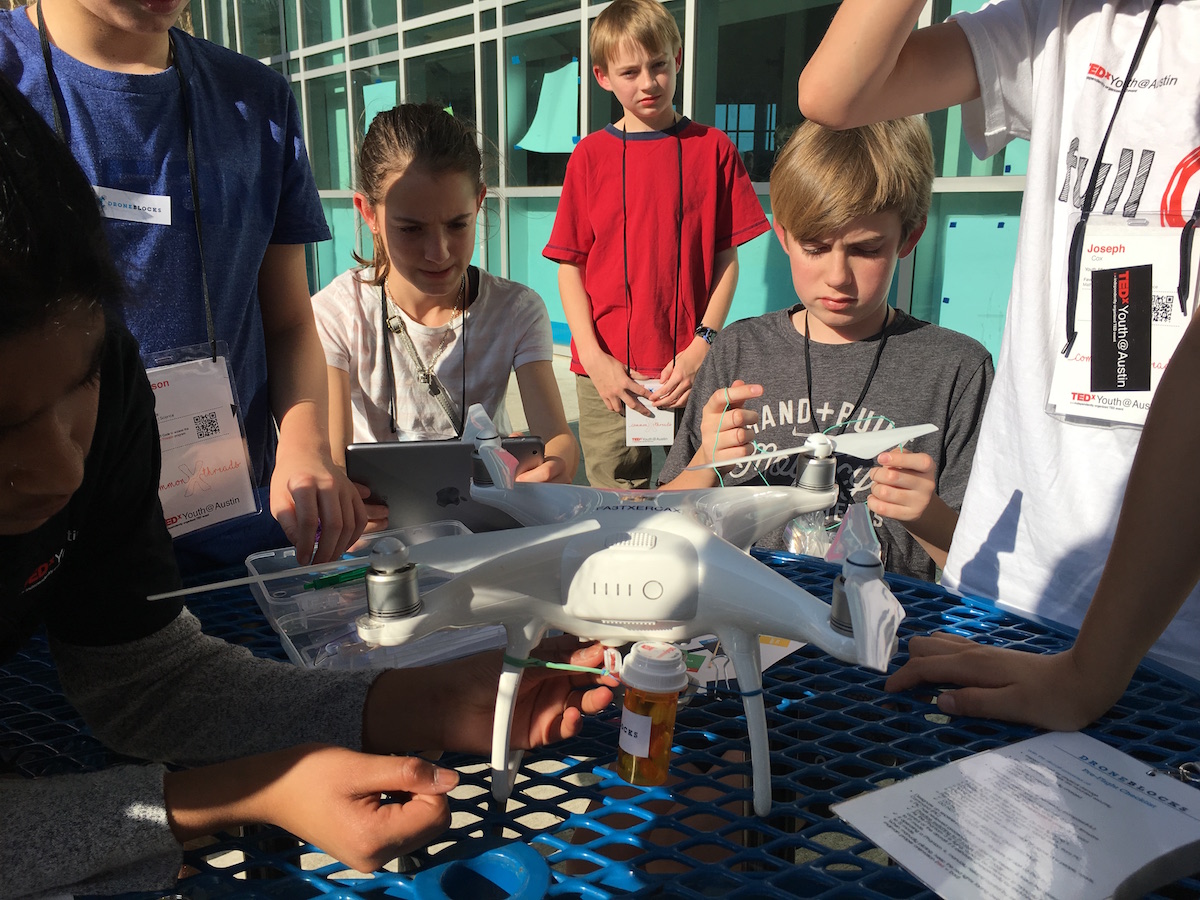In this episode, we’re talking to Dennis Baldwin, the creator of DroneBlocks. DroneBlocks teaches STEM and the real-world application of drone technology.
Dennis has been fascinated with remote control cars and airplanes since he was a kid. Through his passion of the RC hobby he learned many aspects of engineering by building, wiring, and programming flight controllers for his RC planes and quadcopters. He shares a majority of his research and development on his YouTube channel – check out the links in the show notes at kidslab.dev!










Fast forward to 2015 – Dennis has already met Marisa, an elementary school teacher and they are both working together for after-schools classes to teach kids to 3d print, wire, build and fly quadcopters. He experiments with block programming and the DJI SDK – DJI is the market-leading drone manufacturer. Students loved it and so Droneblocks was born.
Droneblocks is block-based programming for drones. After connecting the Wifi of a Laptop. Tablet or Smartphone, the students can connect to the drone and run their missions. Missions are sets of blocks, typically beginning with a takeoff, followed by various commands such as fly forward, yaw right, etc. and finally – of course – you want to land the drone. With drones such as the Ryzerobotics Tello and some indoor propeller guards, you can easily perform an indoor workshop with a whole class of kids.
Besides the navigation blocks, there are of course also the typical logic, math and loop blocks available. Droneblocks is perfect for learning geometry, such as sine and cosine. Imagine how excited the kids can get, if they are able to apply sine and cosine to move a drone in a circle movement around an object. There are many practical use cases for such drone missions, for example when it comes to 3D scanning via consecutive images taken around an object.
Together with Marisa, Dennis now also offers an online curriculum and professional development services. I am really very excited to talk to dennis about the intersection of drones & coding as well as his thoughts on STEAM education in general.


One comment